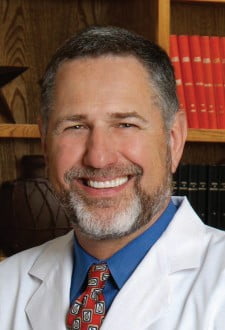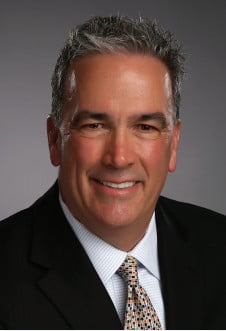Drs. Joel C. Small and Edwin McDonald say that to reach maximum potential is a team effort that requires leadership and self-awareness. Read more about making shortcomings into strengths in this article.
Drs. Joel C. Small and Edwin McDonald discuss reaching your maximum practice potential
 Peak performance is a state of optimal function and flow. Some refer to it as “being in the zone” or “hitting on all cylinders.” For athletes, peak performance is the manifestation of their maximum athletic potential. Their peak experience may last only seconds or minutes, yet it represents the culmination of years of hard work and dedication that, like a meticulously made Swiss watch, brings all the working parts into harmony to create something beautiful and special.
Peak performance is a state of optimal function and flow. Some refer to it as “being in the zone” or “hitting on all cylinders.” For athletes, peak performance is the manifestation of their maximum athletic potential. Their peak experience may last only seconds or minutes, yet it represents the culmination of years of hard work and dedication that, like a meticulously made Swiss watch, brings all the working parts into harmony to create something beautiful and special.
Like elite athletes, many of us less athletic types aspire to attain peak performance in our lives. For those of us fortunate enough to have a peak experience, whether we be athletes, business executives, or healthcare professionals, the experience leaves an indelible mark on our psyche. Once experienced, we want to remain at our peak forever. This is a challenging but worthy aspiration.
Keeping a clinical healthcare practice at peak performance is a daunting task because it is not a solo endeavor. Taking an entire team to peak performance and maintaining this level of performance is a group effort and requires a level of leadership and self-awareness that few realize.
The following are three factors that are essential if we are to succeed.
Leadership
A clinical healthcare team will never achieve peak performance if the doctor leads by default. … PERIOD. Our commitment to develop and scale our leadership as the complexity of our practices increases is, without question, the most significant factor in our practices’ success.
Leaders must develop a high degree of self-awareness and emotional intelligence. We must recognize our blind spots and shortcomings as well as our strengths. We must create a psychologically safe culture in which team members can speak freely, offering feedback without the fear of reprisal. We must place our values front and center and make them non-negotiable. Finally, we must believe in the good intentions of the people we lead, and we must lead by example.
Those of us who take these issues to heart and lead with purpose will flourish. Peak performance will be within our grasp. Those of us who lead by default will flounder. It is really that simple.
Vision
What does peak performance look like? What individual tasks must be performed flawlessly for a team to experience collective peak performance? These are essential questions that require an answer because without a shared image of what peak performance looks like, it is almost impossible to achieve.
We must spend time with our staff creating a vision of peak performance. Try making a “Peak Performance Checklist” that details individual tasks, when done flawlessly, will contribute to peak performance. The initial list will serve as a rough draft that will be altered as time and experience dictate.
Like any vision, it will fade unless we keep it alive. We must revisit the vision in staff meetings and conversations. Practice-related decisions and actions should be discussed and referenced regarding their contributions in achieving peak performance.
We must impress on our staff that peak performance requires the highest level possible of interdependence between staff members. The front office and clinical staff must function and communicate as a team. As leaders, we must become coaches, as opposed to managers, to help our team function consistently at this high level. More importantly, we must leave our egos at the door and become one with our team.
Review
It is no longer acceptable to allow poor performance to continue because we feel that it is not worth the effort and/or expenditure of emotional capital to correct. Unless all team members (and doctors) are functioning in unison and at a high level, there will be no flow, and peak performance will be unattainable.
Here is the good news! These remedial conversations need not be gut-wrenching. If we have created a psychologically safe culture, discussions regarding performance are common and viewed as being necessary if the team is to attain peak performance. Here is the bad news! We have no immunity to similar discussions. Remember, we have parked our ego at the door. Over time, performance discussions, good or bad, will be seen for what they are — a necessary and useful tool.
The armed forces utilize a procedure they call an “After Action Review.”At the end of a day or at the completion of a specific task, they review what went well and what could have been performed better. This is done in the interest of achieving peak performance. There is no emotion or ego involved. Team leaders give their impression of the overall team performance, and each individual team member critiques his/her individual performance for the day and focuses on what went well and what could have done better. This is a powerful, growth-oriented tool.
There are many other factors that impact peak performance in organizations. For example, leaders must assess their personal needs and requirements that allow them to function at their highest level. These may be different for everyone.
In summary, organizational peak performance is aspirational. No one and no organization functions at this level continually, yet it is a worthy goal. There will be days when things just do not go well. We should be kind to ourselves and our team, recognizing that better leaders experience fewer down days and more peak experiences.
Great leadership can help you achieve maximum potential. Read “Leading through Change” here: https://endopracticeus.com/leading-through-change/
Stay Relevant With Endodontic Practice US
Join our email list for CE courses and webinars, articles and more..

 Drs. Joel Small and Edwin (Mac) McDonald have a total of over 75 years of dental practice experience. Both doctors are trained and certified Executive Leadership Coaches. They have joined forces to create Line of Sight Coaching, a business dedicated to helping their fellow dentists discover a better and more enjoyable way to create and lead a highly productive clinical dental practice. Through their work, clients experience a better work/life balance, find more joy in their work, and develop a strong practice culture and brand that positively impact their bottom line. To receive their free ebook, 7 Surprising Steps to Grow Your Practice Through Leadership, go to
Drs. Joel Small and Edwin (Mac) McDonald have a total of over 75 years of dental practice experience. Both doctors are trained and certified Executive Leadership Coaches. They have joined forces to create Line of Sight Coaching, a business dedicated to helping their fellow dentists discover a better and more enjoyable way to create and lead a highly productive clinical dental practice. Through their work, clients experience a better work/life balance, find more joy in their work, and develop a strong practice culture and brand that positively impact their bottom line. To receive their free ebook, 7 Surprising Steps to Grow Your Practice Through Leadership, go to 
